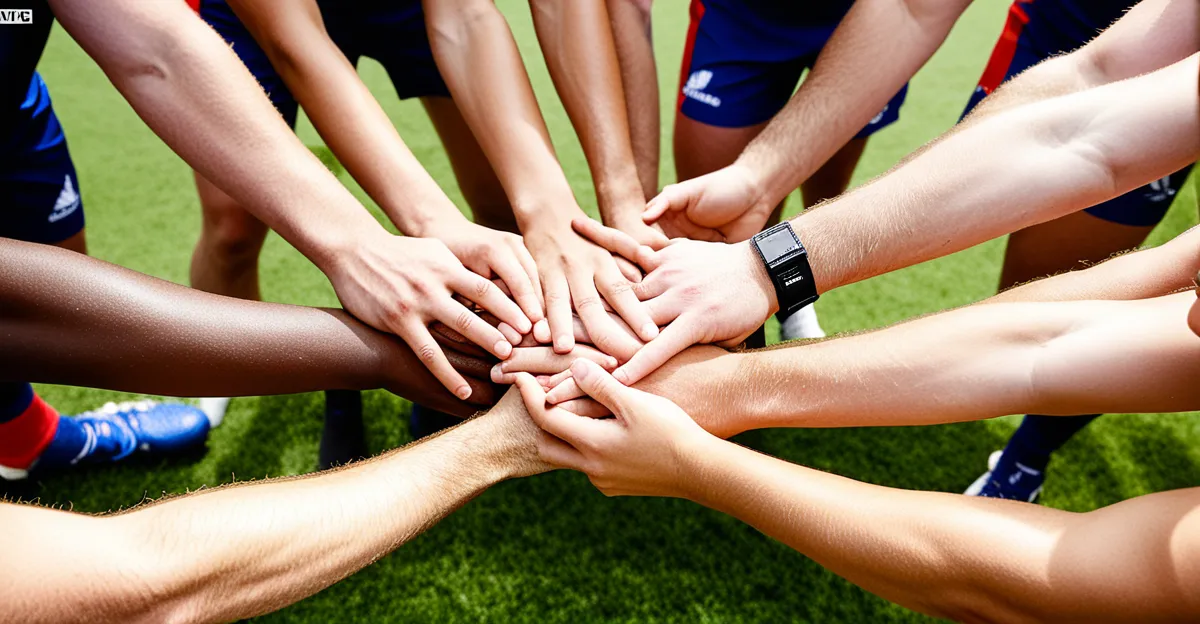Understanding Team Dynamics in UK Sports
Team dynamics refer to the behavioral relationships and psychological processes that occur within a group working toward common goals. In the context of UK sports teams, these dynamics encompass interaction patterns, communication styles, role distributions, and the development of mutual trust. Key elements include cohesion, motivation, leadership influence, and conflict resolution.
UK sports teams often exhibit unique dynamics shaped by cultural values such as resilience, camaraderie, and a historical emphasis on collective discipline. Understanding these unique aspects helps explain how groups navigate pressures from competition and media scrutiny while maintaining competitive edge. For instance, the way British teams balance individual talent with team objectives reveals subtle yet critical psychological factors at play.
In the same genre : Why Are UK Sports Clubs More Than Just Teams?
Common challenges UK teams face within group dynamics involve managing diverse personalities, overcoming internal conflicts, and addressing performance anxiety. Sports psychology emphasizes that recognizing and addressing these challenges proactively through mental skills training and team-building exercises is essential. Effective management of team dynamics can lead to enhanced cooperation, improved motivation, and ultimately, superior athletic performance in competitive UK sport environments.
The Impact of Team Dynamics on Sports Performance
Team dynamics fundamentally influence athletic performance by shaping motivation, trust, and morale within UK sports teams. Positive dynamics foster a sense of cohesion that motivates players to align their efforts toward shared goals, increasing overall effectiveness on the field. Conversely, poor dynamics can lead to reduced collaboration, mistrust, and fragmented efforts, ultimately hindering performance outcomes.
Also to discover : Strategies for Improving Your Fitness through UK Sports Activities
In UK sports teams, team cohesion acts as a critical performance factor. Cohesion refers to the strength of the bonds and unity among team members, impacting how well players communicate, share responsibilities, and support one another. Teams with high cohesion exhibit resilience and adaptability, particularly under competitive pressure, which are key components of UK sports success. For example, successful squads often demonstrate seamless coordination and collective strategies stemming from strong internal relationships.
Research in sports psychology confirms that trust among teammates and coaching staff enhances motivation and morale, forming a foundation for sustained high-level performances. Players who feel trusted and valued tend to display increased commitment and confidence, directly benefiting the team’s competitive edge. Psychological skills training targeting trust-building and cooperative problem-solving has proven effective in UK sports environments, reinforcing positive group dynamics.
Leading UK sports teams provide practical evidence of how strong team dynamics propel success. Their achievements often coincide with deliberate efforts to build cohesion, nurture trust, and maintain consistent communication. These factors together form a virtuous cycle — successful outcomes strengthen team dynamics, which in turn drive future performance improvements. Recognizing and intentionally cultivating these elements is essential for any UK team aspiring to reach and sustain elite levels of sport.











